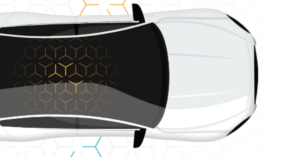We’ve got 99 problems and the Personal Data Protection (PDP) bill is one of them.
On Wednesday, the government withdrew its PDP bill, which was introduced in 2019, basis “multiple amendments and recommendations” proposed by the Joint Parliamentary Committee.
The Ministry of Electronics and Information Technology (MeitY) will now come up with a comprehensive set of legal framework based on the aforementioned. recommendations.
Meanwhile, if you are a fan of candy, the perfect job opportunity awaits you…in Canada. Ontario-based Candy Funhouse is hiring a Chief Candy Officer, who will not only serve as head taste tester bit also try over 3,500 candies a month!
The position is supposed to have a salary of $100,000 Canadian dollars annually, and can be remote or based at the company’s Canada or New Jersey offices. Oh, and candidates can be as young as 5.
Talk about getting a sweet deal. Just remember to read the fine print on that free dental plan on offer!
Shiprocket’s ‘back-to-the-future’ mission
In 2017, Shiprocket (then KartRocket and later Kraftly) was trying to convince small businesses to sell their products online. Today, the Zomato-backed logistics aggregator for ecommerce is nearly a unicorn —with a valuation of about $930 million.
The timing wasn’t right for the (Shopify-like) platform back then, CEO and Co-founder Saahil Goel tells YS Founder and CEO Shradha Sharma in an exclusive interview. “We were way too early,” he says.
Shiprocket says it has now found its calling–democratising ecommerce for Bharat.
Hop on the rocket:
- Shiprocket’s acquisitions include cargo shipping business Rocketbox, supply chain management solution Glaucus, marketing automation platform Wigzo, logistics aggregator Pickrr, and recently, Omuni, Arvind Internet’s retail enablement business.
- The company, which has powered 85 million unique transactions over the years, is seeing traction in smaller towns and cities.
- Apart from its platform-as-a-service play, it is also working to take domestic D2C (direct-to-customer) brands and online sellers global.
Zomato’s shares tank after block deal
Zomato is seeing quite a few ups and downs.
The company’s shares slid to Rs 53.30 per share during the mid-day trade on Wednesday, closing at Rs 55.40, lower than its close of Rs 55.60 per share on Tuesday. The slide came after 8.4% equity worth Rs 3,464 crore changed hands in a series of block deals at an average of Rs 53 per share.
The block deal offer made on Tuesday was of Rs 2,938.6 crore of $337 million of Zomato shares for Rs 48-54 per share. While the offer did not name the seller, according to a report by Reuters, ride-hailing giant Uber sold its 7.8% stake in Zomato Limited for $392 million at Rs 50.44 per share in a complete exit.
Off the menu:
- Uber Technologies was allotted shares in the foodtech company after the former sold its food delivery business in India, UberEats, to Zomato in 2020.
- According to BSE filings, Uber was the second-largest shareholder in Zomato after InfoEdge.
- Uber’s quarterly unrealised losses on Zomato amount to $245 million, while its overall unrealised loss on Zomato in 2022 stands at $707 million.
Making Kashmiri crafts mainstream
A pursuit to find the right papier mache [box] for her husband’s cufflinks led Sadaf Syed to launch her own entrepreneurial venture.
In 2015, Sadaf invested Rs 50,000 and launched Kashmir-based Hands of Gold, a brand that deals in Kashmiri artisanal products including premixes, shawls, stoles, scarfs, papier mache utility items, and more.
From Kashmir, with love:
- In 2019, Sadaf decided to revamp the business and introduced more products that are associated with Kashmir, including saffron, kahwa, honey, almond oil, saffron oil among others.
- The entrepreneur says Hands of Gold has achieved 70% growth in the last one year on the back of an increase in the number of categories and growing interest.
- Hands of Gold competes with brands like Kanz & Muhul, Kashmir Box, and others operating in the same domain.
Now get the Daily Capsule in your inbox. Subscribe to our newsletter today!









